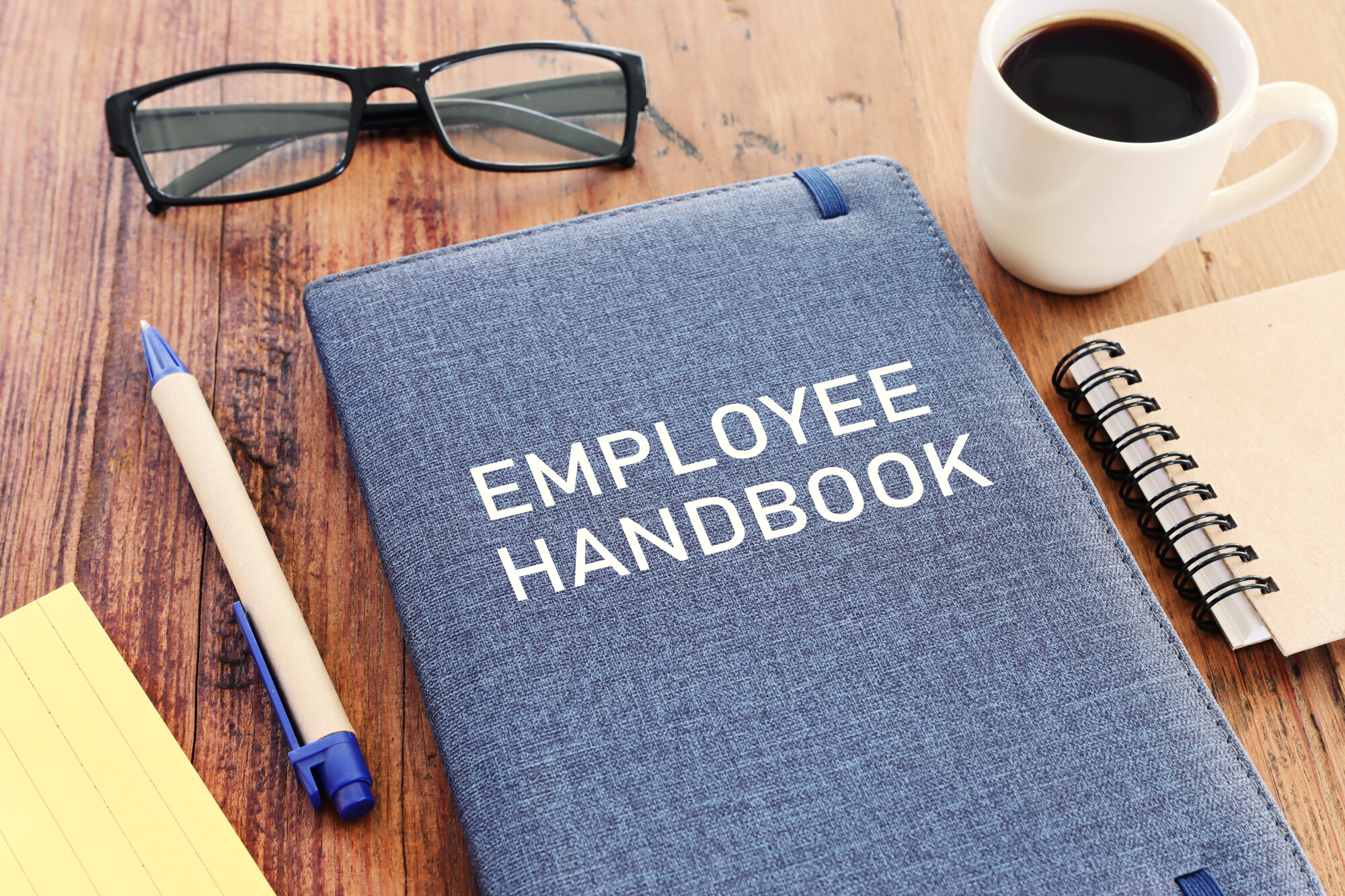Contact Us
Categories
- SCOTUS
- FTC
- Emotional Support Animals
- Service Animals
- Employee Agreement
- Remote Work
- Federal Trade Commission
- LGBTQ
- Minors
- United States Department of Justice ("DOJ")
- Arbitration
- Work from Home
- Workplace health
- Intellectual Property
- Trade Secrets
- Corporate
- Center for Disease Control
- Americans with Disabilities Act ("ADA")
- FFCRA
- Opioid Epidemic
- Occupational Safety and Health Administration (“OSHA”)
- COVID-19
- Families First Coronavirus Response Act
- H.R.6201
- Health Care Law
- IRS
- Paid Sick Leave
- Temporary Leave
- Treasury
- Coronavirus
- Worker Misclassification
- Labor Law
- Overtime
- Kentucky Unemployment Insurance Commission
- Sexual Harassment
- FMLA Retaliation
- Overtime Rule
- Employer Wellness Programs
- Employment Non-Discrimination Act ("ENDA")
- Genetic Information Nondiscrimination Act ("GINA")
- Independent Contractors
- Kentucky minimum wage
- Minimum wage
- Paid Time Off ("PTO")
- Sick Employees
- Wage and Hour
- ADA Amendments Act of 2008 (“ADAAA”)
- Department of Labor ("DOL")
- Employee Benefits
- Employee Handbook
- Employee Misconduct
- Employment Discrimination Laws
- ERISA
- Fair Labor Standards Act (FLSA)
- Family and Medical Leave Act (“FMLA”)
- Human Resource Department
- Kentucky Civil Rights Act (“KCRA”)
- National Labor Relations Act (NLRA)
- National Labor Relations Board (NLRB)
- OSHA
- Overtime Pay
- Pregnancy Discrimination Act
- Social Media
- Social Media Policies
- Title VII of the 1964 Civil Rights Act
- U.S. Department of Labor
- Union
- Young v. UPS
- Adverse Employment Action
- Amazon
- Americans with Disabilities Act
- Bring Your Own Device
- BYOD
- Civil Rights
- Compliance
- Department of Health and Human Services
- EEOC
- Employment Law
- Portal-to-Portal Act of 1947
- Security Checks
- Security Screening
- U.S. Equal Employment Opportunity Commission (“EEOC”)
- U.S. Supreme Court
- Uncategorized
- Volunteer
- Cloud
- Creech v. Brown
- EEOC v. Hill Country Farms
- Equal Employment Opportunity Commission v. Kaplan Higher Education Corp.
- Federal contractors
- Kentucky Labor Cabinet’s Occupational Safety and Health Program (KOSH)
- Lane v. Franks
- Micro-unit
- Non-exempt employees
- Specialty Healthcare & Rehabilitation Center of Mobile
- "Ban-the-box"
- 2013)
- Berrier v. Bizer
- Bullying
- Citizens United v. Federal Election Commission
- Compensatory time off
- Conestoga Woods Specialties v. Sebelius
- Consumer Credit Protection Act (“CCPA”)
- Crystalline Silica
- Davis-Bacon and Related Acts
- Drug-Free Workplaces
- Earnings
- Ehling v. Monmouth-Ocean Hospital Service Corp.
- Federal Stored Communications Act (“SCA”)
- Illness and Injury Reports
- Job applications
- Jury duty
- Kentucky Department of Workers’ Claims
- Kentucky Wage and Hour Act
- Maternity Leave
- McNamara O’Hara Service Contract Act
- Mine Safety and Health Administration ("MSHA")
- NFL Bullying Scandal
- Northwestern
- Payroll
- Permissible Exposure Level ("PEL")
- Sebelius v. Hobby Lobby Stores
- Senate Bill 157
- Shazor v. Prof’l Transit Mgmt.
- Violence
- Wage garnishment
- Web Content Accessibility Guidelines
- Whistleblower
- WorkSmart Kentucky
- At-will employment
- Chapter 11 Bankruptcy
- Chenzira v. Cincinnati Children’s Hospital Medical Center
- COBRA
- Companionship services
- Defamation
- Defense of Marriage Act (“DOMA”)
- EEOC v. Fabricut
- EEOC v. The Founders Pavilion
- Employee Forms
- Employee Hazards
- Employee of the Month Programs
- Employee Training
- Employer Group Health Plans
- Employer Mandate
- Employment Practices Liability Insurance
- Endorsements
- Federal Workplace Agencies
- FICA
- Form I-9
- Freedom of Speech
- Gatto v. United Airlines and allied Aviation Services
- Giant Food LLC
- Government employees
- Government shutdown
- Health-Contingent Wellness Programs
- HIPAA
- Home Health Care Workers
- KYSHRM 2013
- Litigation
- Madry v. Gibraltar National Corporation
- Mandatory vaccination policies
- Medical Exams
- Megivern v. Glacier Hills Incorporated
- Motivating Factor
- Obesity
- Online Account Protection
- Online Defamation
- Participatory Wellness Programs
- Pennington v. Wagner’s Pharmacy
- Pension Plans
- Play or Pay
- Private employers
- Record Retention
- Reference checks
- Sequester
- Severance Pay
- SHRM
- Small Business Administration (SBA)
- Social Media Ownership
- Supervisor
- Supplemental Unemployment Compensation Benefits
- Tangible employment actions
- Tax Refund
- Title VII retaliation cases
- Troyer v. T.John.E Productions
- U.S. Citizenship and Immigration Services
- Unfair Labor Practice
- United States v. Quality Stores
- United States v. Windsor
- University of Texas Southwestern Medical Center v. Nassar
- Vance v. Ball State University
- Contraceptive Mandate
- Crisis Management
- Employee Arrests
- Employee photographs
- House Labor and Industry Committee
- Job Description
- Job Requirement
- Kentucky’s Whistleblower Act
- KRS 391.170
- Labor and Pensions ("HELP")
- Municipal Liability
- Patient Protection and Affordable Care Act
- PhoneDog v. Kravitz
- Posting Requirements
- Public Sector Liability
- Religious Employer
- Right to Work Bill
- Social Networking Online Protection Act (SNOP)
- Social Privacy Laws
- Strategic Enforcement Plan (SEP)
- Telecommuting
- White v. Baptist Memorial Health Care Corp.
- Wilson v. City of Central City
- Workplace Politics
- Business Insurance
- Class Action Waivers
- Criminal Background Checks
- Employee Performance Reviews
- Employee Personnel Files
- Federal Arbitration Act (FAA)
- Federal Department of Labor
- Hiring and Firing
- Hosanna-Tabor Opinion
- Informal Discussion Letter (“EEOC Letter”)
- Insurance Coverage
- Kentucky Labor Cabinet
- National Labor Relations Act
- Retaliation by Association
- Salary Threshold
- Unemployment Benefits
- Workplace Discrimination, Harassment and Retaliation
- Communications Decency Act
- Employee Contracts
- Internet & Media Law
- Internet Defamation
- Non-Compete Agreement
- Uniformed Services Employment and Reemployment Rights Act
- USERRA
Boeing, Boeing, Gone! NLRB GC Recommends Reversal of Employer Handbook Standards
With any new administration in Washington comes changes to the National Labor Relations Board. From the start, Biden’s NLRB has made clear their goal to reverse the employer-friendly handbook standards established by the Boeing decision, and the General Counsel’s March 7th post-hearing brief includes recommendations that take further steps towards that goal.
 The Boeing standard, the result of the decision in Boeing Company 365 NLRB No. 154, has been in place since the decision was made in 2017 and allows handbook rules to be evaluated not only on the basis of legality under the National Labor Relations Act (NLRA), but also on the basis of the employer’s justification for the policy. For example, a policy restricting the workplace use of cell phones would be permitted under the Boeing standard in situations in which cell phone use would endanger employees or potentially compromise the employer’s intellectual property or confidential information. This standard has allowed employers to tailor their handbook rules to the specific needs of their workplace.
The Boeing standard, the result of the decision in Boeing Company 365 NLRB No. 154, has been in place since the decision was made in 2017 and allows handbook rules to be evaluated not only on the basis of legality under the National Labor Relations Act (NLRA), but also on the basis of the employer’s justification for the policy. For example, a policy restricting the workplace use of cell phones would be permitted under the Boeing standard in situations in which cell phone use would endanger employees or potentially compromise the employer’s intellectual property or confidential information. This standard has allowed employers to tailor their handbook rules to the specific needs of their workplace.
However, the current NLRB seeks to return to the pre-Boeing standard, Lutheran Heritage 343 NLRB 646 (2004). The Lutheran Heritage standard much more strictly evaluates and prohibits handbook rules based on the framework that if an employee “would reasonably construe” a policy as restrictive of their rights under Section 7 under the NLRA (such as the rights to organize and bargain collectively), or if the policy would “reasonably tend to chill” Section 7’s protected concerted activities, the policy would be unlawful.
The General Counsel’s recent post-hearing brief, issued in the case Stericycle, Inc., recommends that the Board return to the Lutheran Heritage standard, claiming that the Boeing standard is too complicated and unpredictable as well as less protective of employee rights. The brief also recommends strategies to strengthen the Lutheran Heritage standard, including a presumption that employees will likely interpret a rule as being restrictive of their Section 7 rights and that employers should include a statement of those rights in their employee handbooks, as they should not assume that employees are aware of those rights.
However, the brief also recommends that if a rule is both specifically fitted to a particular circumstance and the employer’s interests outweigh Section 7 rights, then a rule may stand as lawful, even if it might otherwise have been deemed restrictive and unlawful. This recommendation would help employers to regain some of the edge lost in a reversal of Boeing.
As the NLRB continues to work towards overturning current case law, employers should begin to consider which policies of theirs may come under fire—and prepare accordingly. To review your handbook and plan for the fickle future of labor law, contact McBrayer today.
 Claire M. Vujanovic, member with McBrayer, is located in the firm's Louisville office. Ms. Vujanovic's practice is concentrated in the areas of labor and employment law and includes NLRA compliance, drafting and reviewing employment manuals and policies, drafting severance, non-compete and employment agreements, and counseling clients related to overtime and wage and hour regulations, laws and claims and workplace discrimination. Ms. Vujanovic can be reached at cvujanovic@mcbrayerfirm.com or (502) 327-5400, ext. 2322.
Claire M. Vujanovic, member with McBrayer, is located in the firm's Louisville office. Ms. Vujanovic's practice is concentrated in the areas of labor and employment law and includes NLRA compliance, drafting and reviewing employment manuals and policies, drafting severance, non-compete and employment agreements, and counseling clients related to overtime and wage and hour regulations, laws and claims and workplace discrimination. Ms. Vujanovic can be reached at cvujanovic@mcbrayerfirm.com or (502) 327-5400, ext. 2322.
Services may be performed by others. This article does not constitute legal advice.

